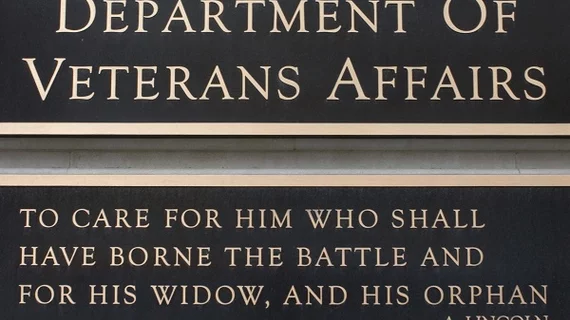GAO: Before Cerner transition, VA spent $1B a year on EHR
The U.S. Department of Veterans Affairs (VA) is about to undergo a massive, $16 billion revamp of its electronic health record (EHR) system. A month after a $10 million deal with Cerner was finalized, the Government Accounting Office (GAO) released a report that found the VA spent $3 billion on EHR support between 2015 and 2017.
The VA provides healthcare services to nine million veterans and families with Veterans Health Information Systems and Technology Architecture (VistA), it’s current health information system. But since its initial implementation 30 years ago, VistA, according to the GAO, is costly to maintain and doesn’t allow for interoperability with the Department of Defense (DOD) and private healthcare providers.
In the past three years, the VA spent $2.99 billion on VistA between 2015 and 2017—roughly $1 billion a year. The price tag lower than the expected $16 billion cost over 10 years, but Rep. Phil Roe, MD, R-Tennessee, chairman of the house committee on veterans’ affairs, argues the price includes positives in addition to efficiency and communication improvements.
“$15.8 billion dollars over to 10 years, including $10 billion to Cerner, is a staggering number for an enormous government agency,” Roe said. “However, EHR software is only a relatively small part of the overall price tag. What exactly does all that money buy?
“The EHR Modernization is not just a technology project; it will have a major impact on the way VHA operates. That means clinical and administrative workflows. It will also reshape the culture, as VistA has. However, if imposed on the clinicians from the top down, the culture will reject it, and no amount of technological savvy will be able to save it.”
The new Cerner EHR system will involve 48 “deployment waves” beginning in 2019 and finishing up in 2017. The implementation will follow the same path as the DOD rollout, beginning with the Pacific Northwest, which may go live with the Cerner platform by the end of 2019
“We expect this program to be a positive catalyst for interoperability across the public and private healthcare sectors, and we look forward to moving quickly with organizations across the industry to deliver on the promise of this mission,” Cerner president Zane Burke said in a statement when the contract was finalized.

